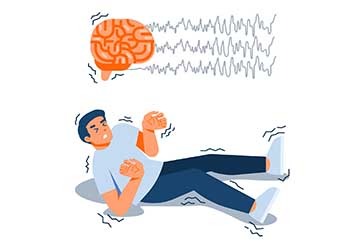 Book Appt.
Book Appt.
 Call Now
Call Now


Head injuries are a serious medical concern that can have a range of consequences, from mild to severe. They can result from various incidents, including accidents, falls, sports injuries, or assaults. Understanding the different types of head injuries, their causes, and appropriate treatment is crucial for ensuring the best possible outcome for those affected.
Types of Head Injuries
Causes of Head Injuries
Treatment and Management
Immediate Care: In cases of head injury, immediate medical attention is crucial. This includes assessing the individual's level of consciousness, stabilizing their condition, and conducting imaging tests (such as CT scans) to evaluate the extent of the injury.
Observation and Monitoring: For less severe head injuries, observation and monitoring may be recommended. This involves watching for any changes in symptoms, as some complications may not be immediately apparent.
Rest and Rehabilitation: Rest is vital in allowing the brain to heal following a head injury. This may involve both physical and cognitive rest, as well as gradually reintroducing activities once cleared by a healthcare provider.
Surgical Intervention: In cases of severe head injuries with complications like intracranial bleeding or skull fractures, surgical intervention may be necessary to alleviate pressure on the brain or repair damaged structures.
Conclusion
Head injuries encompass a range of conditions, from mild concussions to severe traumatic brain injuries. Understanding the types, causes, and appropriate treatment of head injuries is crucial in ensuring the best possible outcome for those affected. Prompt medical attention, careful observation, and appropriate rest and rehabilitation are key components of the recovery process. By taking these measures, individuals can increase their chances of a successful recovery and minimize potential long-term effects.
SHALBY Sanar International Hospitals provides extensive medical procedures backed up with our state-of-the-art technology and a team of highly qualified & experienced clinical experts.

Patient from Iraq gets treated by Dr. Harnarayan Singh | SHALBY Sanar International Hospitals

15 year old Patient from Liberia gets treated by Dr Harnarayan Singh | Neurosurgery & Spine Surgery

Mrs. Khalida Khaleel from Iraq Overcomes Degenerative Disc & Grade 1 Spondylolisthesis

Successful Treatment of a Patient from Uzbekistan for Degenerative Disc Disease and Back Syndrome

Surviving Stroke: Bipasha Banerjee's Testimony on Timely Intervention

Successful Intraoperation Neuro Monitoring on patient Hasan from Iraq

Successful removal of Glioma using advanced machines

A multidisciplinary care worked wonders for Ms. Akhtamova from Tajikistan

Treatment for Brain Aneurysm - Al Qumairi Saeed Mohsen Awadh from Yemen
Our doctors pen down their research findings and experiences from time to time. Their words provide deep insight into the latest techniques, technologies and other advancements in healthcare. It provides expert answers to all kinds of health questions for real-life issues.
VIEW ALL




Since the day of its foundation, SHALBY Sanar International Hospitals is committed to provide comprehensive healthcare services. It regularly organizes awareness programs in its premises and encourages outdoor healthcare activities and camps with an intent to put focus on preventive healthcare.
VIEW ALL